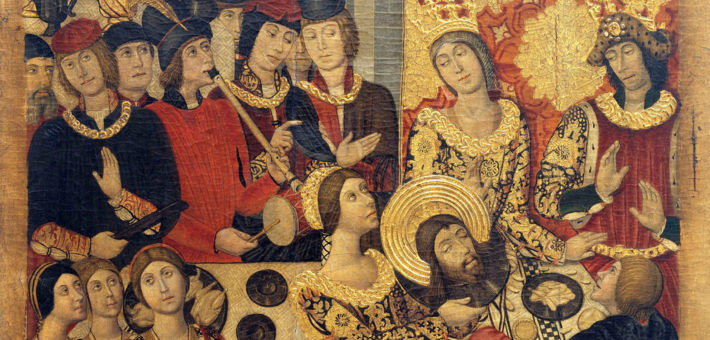Commentary on Psalm 85:8-13
The lection consists of what are clearly the most familiar, beautiful, and beloved verses of Psalm 85, but it is helpful to look briefly at verses 1–7 in order to set the context.
Ancient origin and context
The most obvious thing about verses 1–7 is that restoration is proclaimed and celebrated (verses 1–3), and prayed for at the same time (verses 4–7). Since “restored the fortunes” (verse 1) is frequently used for the return from exile (see Jeremiah 30:3, 18; 31:23; 33:7, 11; Ezekiel 39:25), and since Deutero-Isaiah links forgiveness with the return from exile (see Isaiah 40:1–2), it makes sense to understand Psalm 85 in the context of the early postexilic period when circumstances proved far more difficult than Isaiah 40–55 had envisioned.
It is probably not coincidental that Haggai, who was active in the early postexilic period, identified the following discouraging realities in the restoration community: God’s “glory” was absent (Haggai 2:7, 9; New Revised Standard Version “splendor”); the land was not productive (Haggai 1:10); and there was no peace (Haggai 2:9; New Revised Standard Version “prosperity”). Note that these deficiencies are addressed specifically in Psalm 85:8–10, 12.
Psalm 85:1–7 may well have originated as a prayer for the discouraged restoration community, accompanied by an expression of hope that the prayer would be answered (verses 8–13). Note that “salvation” frames the section of requests (verses 4–7), and it will recur in verse 9. The word hesed, “steadfast love,” also occurs in the final line of the requests, and it will recur in verse 10.
Verses 8–13: Beyond the ancient context
While it makes good sense to construe verses 8–13 as the anticipated answer to the requests of verses 4–7 (see especially verse 8, which says “God the LORD will speak”), it is not necessary nor desirable to restrict the significance of verses 8–13 to their ancient setting. As James L. Mays suggests, “The psalm therefore is a judgment on any easy satisfaction with life under the conditions created by human character and a summons to look for and pray for the time and life created by the character of God.”1
In other words, Psalm 85, especially verses 8–13, is a portrayal of the abundant life that God wills for all humankind in all times and in all places. So, not only does it summon us “to look for and pray for” the abundant life that God wills, as Mays suggests, but it also challenges us to work toward that abundant life for all.
To appreciate the summons and the challenge, it is helpful to realize that “salvation” (verses 4, 7, 9), biblically speaking, is the creation and/or restoration of conditions that make life possible in all its fullness for all people. At this point, “salvation” is virtually synonymous with shalom (verses 8, 10), which is usually translated “peace.” This is not a bad translation, but it is not expansive enough.
Although it may sound awkward as a translation, shalom means “comprehensive well-being.” Shalom exists when all people are attended to and provided for in such a way that they will be able not only to survive, but also to thrive. Such conditions could also be called “righteousness” (verses 10, 11, 13)—that is, when things are right for the flourishing of everyone. Together these three words are an impressive summary of the will of God for humankind (see Isaiah 32:16–18 for a similar portrayal of the divine will; this text features the words “righteousness,” shalom, and mishpat, “justice,” which is lacking in Psalm 85).
Why does God will “salvation,” shalom, and a world set right for everyone? Because God is steadfastly loving and faithful—that is, it is God’s fundamental character to love! Just as “salvation,” shalom, and “righteousness” are an admirable summary of the purposes of God for the world, so “steadfast love and faithfulness” (verse 10; see also verses 7, 11) are a summary of God’s character. God had revealed Godself to Moses with these terms, and they are paired frequently throughout the Bible (see Exodus 34:6; Psalms 100:5; 117:2; this word-pair also almost certainly underlies “grace and truth” in John 1:14, where Jesus incarnates the very character of God).
“Salvation,” shalom, and righteousness as food for all
One of the most compelling interpretations of Psalm 85 is the colorful print (or seriagraph) titled “Psalm 85” by John August Swanson.2 Swanson has created an agricultural scene in which people are plowing, sowing seeds, feeding animals, and sharing food. Inscribed into the sky and soil are the poetic lines that comprise verses 10–11. Swanson does not include verse 12, but he doesn’t need to. The whole scene depicts a land yielding its increase; thus, Swanson’s work has a way of inviting attention to verse 12, the one verse in Psalm 85:8–13 that does not contain one of the highly significant words discussed above—“salvation,” shalom, “righteousness,” hesed, and “faithfulness.”
As a result, verse 12 is much more prosaic, affirming straightforwardly that the “good” that God gives is the produce of the land—that is, food. Food is the tangible expression of “salvation,” shalom, and “righteousness.” They exist when everyone is fed. Not coincidentally, the job of the Judean king was to feed his people—so, he was to be “like rain that falls on the mown grass, like showers that water the earth” (Psalm 72:6). Showers make grain grow so that “there will be an abundance of grain in the land” (Psalm 72:16). Psalm 72 describes this royal role in verses 1–7, which, like Psalm 85, features the words “righteousness” (verses 1–3, 7) and shalom (verse 3, New Revised Standard Version “prosperity”; and verse 7).
In terms of the summons and challenge mentioned above, a basic challenge is to shape a world where everyone is fed. There is food enough to feed everyone, yet 10 percent of the world’s population is daily plagued by hunger. The first of the United Nations Millennium Development Goals is to end poverty and hunger, and Psalm 85:8–13 summons us to do precisely that.
Notes
- James L. Mays, Psalms, Interpretation (Louisville, KY: John Knox, 1994), 277–78.
- https://johnaugustswanson.com/catalog/psalm-85/


July 14, 2024